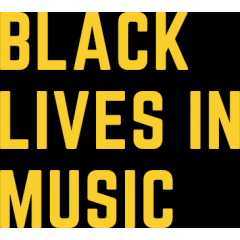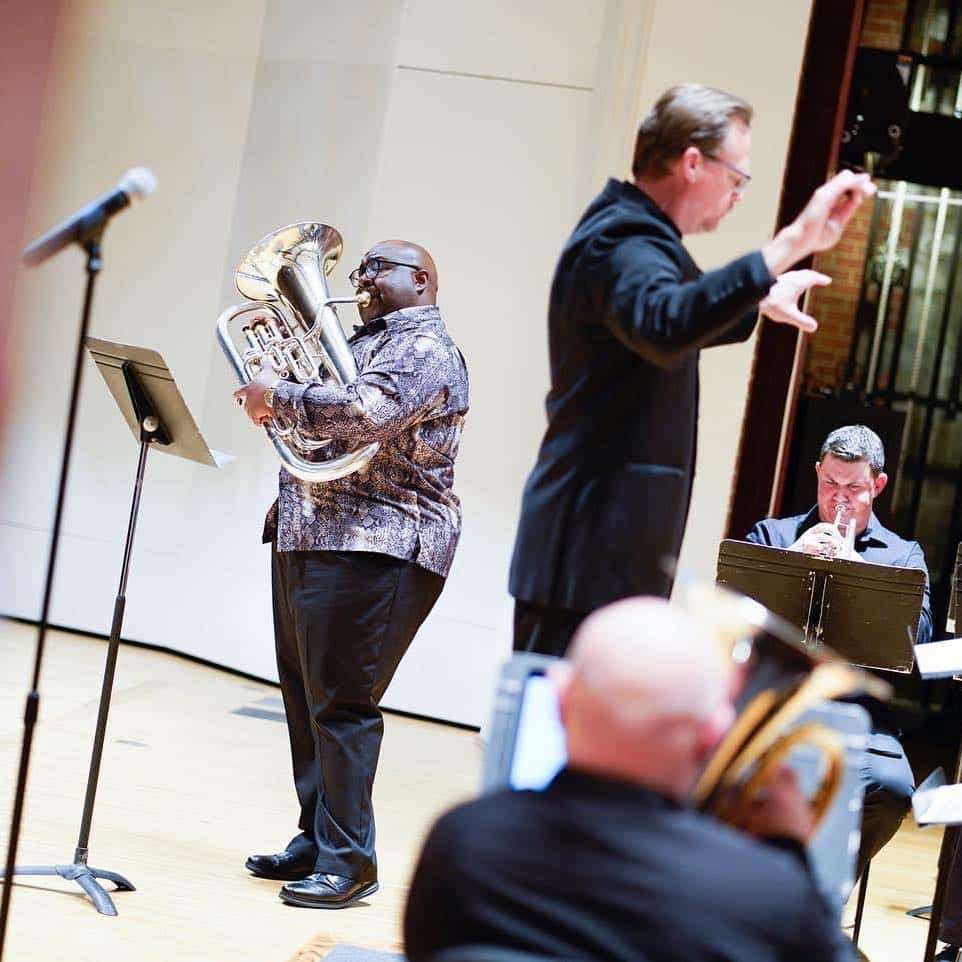Dear Alma, I’m a black US cellist. Where does that get me?
OrchestrasA tough call for our agony aunt:
Dear Alma
I am a black American cellist, 24 years old.
As a kid I found a cello in the music room at school and played the hell out of it. That got me a fast-track to music school, where teachers said I could be a soloist. All I wanted was a job in a good orchestra that paid the bills on 20 hours a week.
So where am I right now? Auditions landed me offers for assistant-principal cello at two orchestras just outside the top ten. One offers $30k more but patronises the shit out of me (they don’t seem to realize this). They say I’ll be principal in a couple years and would I like to be on the poster of the orchestra’s new season. The other is in a southern city where no-one cares so long as you clock in for rehearsal. That fits my general life plan (I have other interests) but I have a feeling this organization won’t last long and I’ll be out of a job at 35.
I always imagined playing cello would be a big part of my life. Now, I’ve learned to hate everything that goes with it. Whichever job I take, I’d be the only black face in the section. Where in America do I go from here?
Alienated
Dear Alienated,
I hear what you are saying and I see what you are saying every day in my life as a classical musician. Not only the lack of diversity in our field, from professors to students, performers to audience, but also the micro aggressions (intended and not) and the lack of awareness of any problem whatsoever. It certainly must be frustrating, exhausting, insulting, and isolating.
But good news is here, albeit slow in coming. The classical music world is looking more and more like our real world, baby step by baby step. When I was in school, I had never learned about or performed a work by a female composer, a person of any color besides white. Now I play music every month by female and non-white composers and am a member of a diverse and inclusive musical group. I know that with color diversity, we are still a long way off, but it’s changing. It’s happening. It has to.
For your particular quandary, I would recommend the first option. Both for financial reasons and long-term job stability. The detail you shared about the behavior of the admin – asking if you would like to be on the poster, implying a promotion – these are indications that you in fact are in the drivers seat. You are needed, not only for your talent, but for these organizations to diversify, something they are desperately in need of. So desperate (according the the League of American Orchestras, only 2% of US orchestra musicians are black) are classical organizations of every stripe in the USA that many hire diversity consultants. In fact, the League of American Orchestras last year created the Catalyst Fund Incubator, which grants 20 orchestras each $75,000 to to hire diversity, equity, and inclusion consultants to “support their vision of embedding [DEI] into all aspects of the organization’s operations.”
Alienated, find your social group outside of the work environment. It’s true, you will feel alone and isolated at work, but work is not where your life is. I have never found (or wanted to find) friends through work. My world exists before and after rehearsal. And if you are interested in helping the music world change, work with your orchestra to make this happen. An ordinary person can do extraordinary things. Turn your frustration into supporting others who share your love and passion for music, and look to you and your successes as inspiration.
Questions for Alma? Please put them in the comments section or send to DearAlmaQuery@gmail.com






I wonder if the cellist is feeling a little “used” by the inquiry about putting his/her face on the poster. Perhaps it is something the orchestra would like to do, but think about this: if some young black music students see your face, they will realise that there is some point to their carrying on, that the orchestra in question is not a closed door to them.
Also, is the likelihood of feeling isolated in the orchestra a way of saying you cannot/will not make friends with white people? Why should it matter if you are the only black person in the section? Your interest in common with these people is music. If your race does not matter to them, why should it to you?
Seems to me you have had a solid offer from one of these orchestras, though you seem more attracted to the one where little appears to be demanded. I’m not sure your attitude to being a member of a committed group is all that attractive, and you seem to me to have been damned lucky — and apparently talented enough — to have earned these options.
You are told you have the talent to be a soloist but want to get al you need to live on by putting in your 20 hours. You sound like someone who will be off like a shot as soon as the set time per service is over — not the way to make friends, fit in or be treated as anything other than a time-serving jobsworth. It is great that you have a world elsewhere, but you seem to be treating an enviable career opportunity with contempt. You will get away with it longer than most simply because the orchestra will be reluctant to let a talented minority (or “diverse”) player go, but I don’t like the sound of what you seem prepared to offer your new colleagues, wherever you fetch up.
V Lind – this writer is suffering from a life of racism and heading into a job in which he/she will feel extremely unique. Give them a break – they have a lot more to deal with than you.
Tell me more about their life of racism.
Tell the dog about your resentments and save the sarcasm.
Enjoy your ratio, unpronounceable internet denizen
I don’t dispute that but the letter indicates attitudes that are unattractive in any employee in any profession: give the minimum, take the maximum, prejudge those around you. People like James Meredith and Jackie Robinson faced far more, but they had sincere ambitions in their lives: to get a good education, to play professional baseball. And they opened the floodgates for others through their selfless courage.
This writer seems to feel that even to take time to have a cup of coffee with a colleague would cut into his/her “real” life. I don’t think much of anyone who gets such career opportunities in what would appear to be his/her chosen field, and something that is a much better life than mining, or factory work, or stocking supermarket shelves, and prejudges those with whom he/she will be engaged — or, in this case, utterly disengaged.
Who’s perpetuating racism here?
I agree with the advice given, and I want to add that by being a prominent face in the bigger orchestra, you can be sure that you’re helping to change the culture of that organization, and of classical music as a whole. Who knows how many young kids of color might be inspired by seeing you onstage. And although you may be one of the first Black people in that orchestra, certainly more will follow.
Our profession *is* changing for the better. Even in my small regional professional symphony. I can’t imagine how it must feel to carry that weight on your shoulders, but it’s wonderful to see and hear the sound of the earnest effort to really be more inclusive in our world, not just tokenism.
I must disagree with the final portion of the advice, however. Not only did I socialize with my musicians coworkers, I married one of them! And that’s not atypical at all, haha 🙂
Agreed. I think the comment about finding friends outside is meant to say that, although in their job, they may feel isolated, there is a whole world outside in which they can explore and find places where they do not feel isolate. I myself also found my spouse through orchestra but I wasn’t contending with what this writer has been contending with.
Hey there! Congratulations on winning good paying positions. I have been a section cellist in a well known GRAMMY winning regional per service orchestra. We are known for our diverse programming and have been for decades. I have been in this group since 1982 and I make no more than $5k per season. The orchestra world is changing and getting smaller as audiences look for experiences that we don’t offer. Competition for positions is fierce, with universities around the world putting out more incredible players than there a jobs for. So, take the highest paying job and hope that it lasts. Being a pioneer has never been easy.
Wow what an attitude… “All I wanted was a job in a good orchestra that paid the bills on 20 hours a week”. Or “The other is in a southern city where no-one cares so long as you clock in for rehearsal. That fits my general life plan” .. You must be a delight to work with, but hey here’s a lot better piece of advice than what dear Alma gave you. You hate everything about it so quit and leave it to those who actually want to do it. It’s better than not getting tenure over attitude problems and then self righteously screaming racism!
Well said. There was nothing casual at all about the sentiments expressed by the original letter writer.
1: If you think you can prepare the repertoire and keep your playing at the level required with a 20 hour work week, you have no idea what the job requires.
2: No orchestra is going to go on record promising you a principal job you haven’t won in an audition.
3: This is extremely insulting to the musicians of color who have earned their positions in major orchestra on the basis of merit.
The (?fictional) cellist sounds rather self absorbed to me. Over in Europe and Asia, there would be scores of cellists who would love to have not one but two job offers that are as good as that at the young age of 24!
Many musicians would be delighted to be on the poster- it doesn’t hurt your cv/resume or your profile – whatever background you’re from. Classical music is after all, a profession where you’re on display on stage on all the time.
If you would rather be a shrinking violet and hide, session work for pop music and video game recordings might suit you better, and will pay infinitely more. But those jobs aren’t easy to get either.
Playing for an opera or ballet company in the orchestra pit also offers more anonymity – but has a tougher workload (sometimes 8 shows a week when in season), there are even fewer jobs and the pay is not higher depending on which institution it is. This musician also doesn’t want to work hard (nothing more than 20 hours a week!!) actually a deal breaker in most professional orchestra jobs around the world these days- in fact, most jobs. 20 hours a week is only half a job or one third of a job wherever you look in the world. $30K for a 20hour week is actually pretty good- $30K MORE than another orchestra’s offer is ludicrously generous.
There are actually lots of black musicians in orchestras and cello sections in the United States; I think it’s a bit disingenuous to claim he/she is the only black professional cellist around. If assistant principal at a stable wage isn’t good enough, perhaps this musician could try auditioning for orchestras in Europe, South America and Asia…..and then realise what great offers these two positions are.
PS assuming that you will be employed for life by any orchestra and lamenting that you know one organisation so well (even though you don’t work there yet) that you predict that they will go bust in x years and deprive you of a lifetime job is highly presumptuous in a world where people get let go and budgets get trimmed all the time, even in and especially in classical music. I’d say to the cellist- get real, and try to not to let your head swell any more or you might not get through the front door.
I’ll go with the ‘fictional’ of your first sentence. Many of these Dear Alma letters sound iffy to me, anyway…
Sounds like you need a race therapist…focus on what you can change not what you can’t…practice…practice…practice
Sounds to me like you should find a different profession. As you say, you have other interests. You might have to actually work however and probably more than 20 hours a week. Sounds like you are riding the DEI train. Guess what; DEI now stands for Didn’t Earn It.
It’s the attitude that’s likely to be a problem not the skin color.
It will stand out a mile with commited colleagues and alienate you from the get-go. My advice in all kindness is to do something else. I don’t know anyone who survived the profession starting out with an attitude like that.
Any cellist, of any race, would be doing well in this business if they followed even a portion of the career path of the late Kermit Moore. Those of us of a certain age remember that debut LP he made for Columbia Masterworks. I am sure he felt lonely and “token-ized” from time to time, perhaps often, but what he accomplished was so impressive. He had opportunities, and he took them, but he also created opportunities, for himself and others. If our black cellist friend who wrote the letter has not studied Moore’s C.V. I’d strongly urge he do so without delay. Get busy living.
Ridiculous. Your race is and should be irrelevant. Anthony Elliot was Associate Principal Cello in the Minnesota Orchestra in the 1970s, and it was solely for his playing. No one is guaranteed a living in classical music. There certainly should be no quota systems. If you don’t want a starting-out job, you won’t get one, and you probably won’t get one better, either. Everyone has to “pay their dues.”
‘Tony’ was a great cellist and continues to teach in addition to conducing a youth orchestra. Lucky kids to have his knowledge and experience passed on to them.
Stop thinking about being a black cellist and concentrate on being a cellist. If you’ve gotten this far, you’re probably pretty decent. This position is your reward. Don’t consciously add crippling psychological pressure to an already pressure-filled occupation by constantly fixating on identity.
The problem with religiously believing one is the victim of racism is that even when racism isn’t present, the mindset of victimhood never ceases to find it. Thus, racism never ceases to exist.
There are more cello jobs out there. Need to use your talents to land one.
I can Relate! I’m almost 82 years young and have had a Great career in the World of Music. My years were between the 1960’s and the 2020′. Please understand that being “Different” was a job killer! Black, Gay was not the way to succeed in NYC. I was a super professional musician that played Bassoon and all the other wind instruments, so that I could also include Broadway shows. I found out that Everyone at that time needed to know who was Gay so that they could make the necessary moves. I was Marked, despite my solitude, and experienced the same Nasty, experiences that every other excluded population was exposed to. IT WAS HORRIBLE! Yet, I survived by my excellence as a
super Bassoonist and the contractors saved me. I did work with Bernstein in the NY Phil: I did work with All the major and minor Musical groups in NYC and surrounding areas for 30 years. I was a Principal Bassoonist with the NJ Symphony for 8 years. Henry Lewis, was the wonderful Black, musical director! The years were 1971-1978 ish! Blacks were Always included and welcomed: Who cared? It was our musical community that made the Great Music! I did have expulsion due to my perceived being “Gay”, although I tried to hide my identity. In my devoted and years long training, I was Happy to just be able to be in an Orchestra that played the Music that I LOVED being a part of! I was a singular person in a sea of strangers, yet we played MUSIC, together. Alone but Happy! My LOVE to you, dear one, I share your unhappiness. But, there is Always, hope and pleasure…. Peter Simmons
It must be tough to live in a world where being offered multiple positions—despite the admission that just “clocking in for rehearsal . . . fits [your] life plan”—is racist. Maybe do yourself and everyone else a favor and find a new line of work (since you also have “other interests”), so that the people who actually want to be there, and have worked toward that goal, may have an opportunity that won’t be squandered on someone who still has some growing up to do.
To always be seen as a diversity hire no matter how good or talented you are.
Check out Chineke! Foundation. (Google it). Things are changing, but not as quickly as we’d like. Good luck .